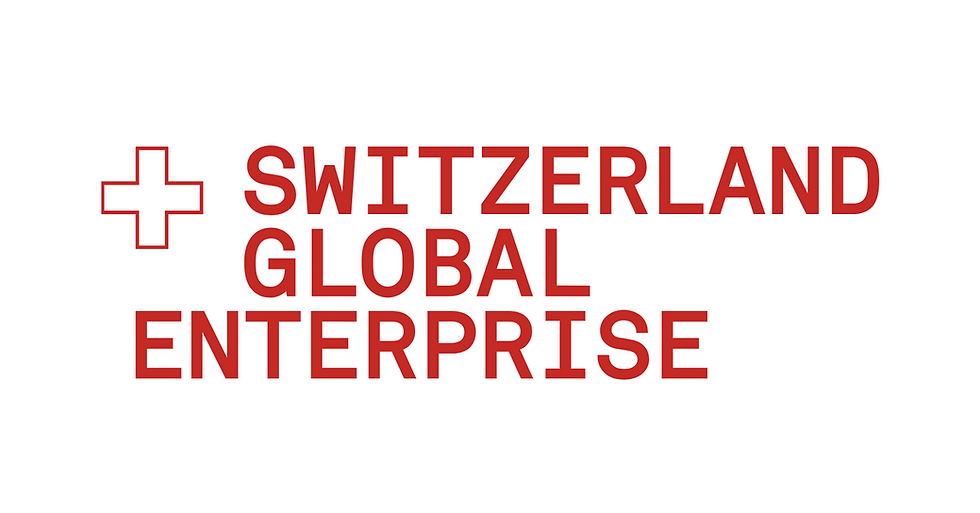How food trends are contributing to a more sustainable future
- sara9231
- Jun 26, 2024
- 3 min read
Updated: Oct 31, 2024
Article by Suzanne van der Maarel, Food & Retail Lead, and Katka Letzing, CEO at Kickstart Innovation
It's obvious: our current food system is far from sustainable. Adapting nutrition and consumption is an essential prerequisite for achieving the SDGs, as these goals cannot be achieved by improvements on the production side alone. In addition to plant-based proteins, alternative protein sources such as algae, fungi and insects are becoming increasingly important. They have the potential to provide sustainable protein options with a smaller environmental footprint.

Food upcycling is also an issue. Recycling food waste into new products helps to reduce waste and create value from materials that would otherwise be thrown away. There are more and more food products made from recycled ingredients, such as snacks made from surplus fruit and vegetables. Sustainable packaging solutions such as compostable materials, edible packaging and reusable containers are becoming more common as consumers seek alternatives to single-use plastics.
Start-ups in particular are on a mission to change the world with their innovative ideas. The food sector is no different. They often work with established companies to find solutions. One company that has taken such a project from presentation at the annual Kickstart innovation programme in Zurich to implementation in its stores is Coop. Following the successful introduction of apricot kernels as an alternative to almonds, the company offers a milk alternative in its supermarkets that is also based on apricot kernels, which are normally a waste product. Kern Tec produces the product with Emmi.
Chocolate 2.0: cocoa free from local beans
The chocolate industry is responsible for huge carbon emissions, deforestation and humanitarian problems. And in the wake of climate change, a multi-billion dollar cocoa supply deficit is looming. British start-up NuKoKo has come up with a solution: a cocoa-free chocolate made from faba beans. This abundant and resilient legume grows in many regions of the world. The production process is closely modelled on the traditional cocoa fermentation process used in cocoa-growing regions around the world. As well as being better for the environment, the chocolate contains less sugar.
Vegan cheese and dairy from nuts and beans
Plant-based cheese alternatives are gaining popularity. Swiss vegan creamery New Roots offers a range of products, including cheese, yoghurt, and fondue, handcraftedfrom organic cashew nuts by using traditional cheese making methods. These alternatives have a lower ecological footprint than traditional dairy products. Since 2022, they have been experimenting with Swiss lupins and Italian chickpeas, aiming to work with local farmers to create a Swiss-based supply chain.

Cheese from cashews instead of cow’s milk: The vegan dairy New Roots is breaking new ground. Source: ZVG
The start-up Viva la Faba has developed an innovative manufacturing process for plant-based cheese that does not require artificial additives or flavors. The base consists of plant-based proteins, particularly those from fava beans, combined with other organic ingredients. The mixture is emulsified, heated, stirred, and solidifies after several days of cooling in a special process. The cheese is then traditionally sliced, grated, and packaged.
Vegan seafood as a protein source
American food technology start-up AQUA Cultured Foods uses microbial fermentation to 'grow' cellulose and is developing the world's first sushi-grade whole muscle tuna and scallops, as well as shrimp and squid alternatives, based on its innovative fermentation technology. AQUA's fermentation methods use no animal ingredients norgenetic alteration or modification. Each serving contains 20 to 30 calories, 5 to 7 grams of fibre, and none of the baggage of traditional seafood, nor mercury, pesticides or microplastics. All these examples show that there is a high level of innovation in the food sector to create solutions that are less harmful to the climate.
Read the article in German in Handelszeitung
If you are a startup active in food and retail and circular economy or interested in collaboration with corporates such as Coop, you can learn more about our program and pre-register.

